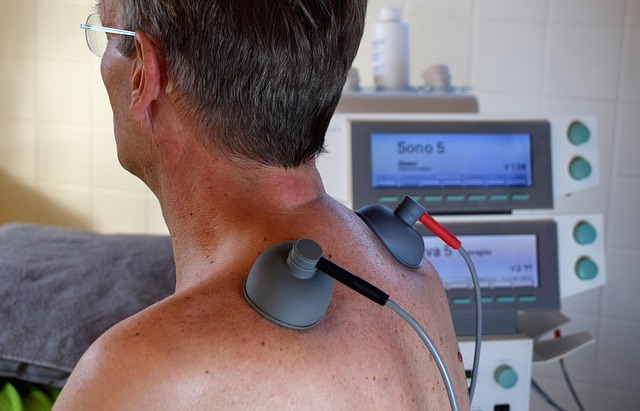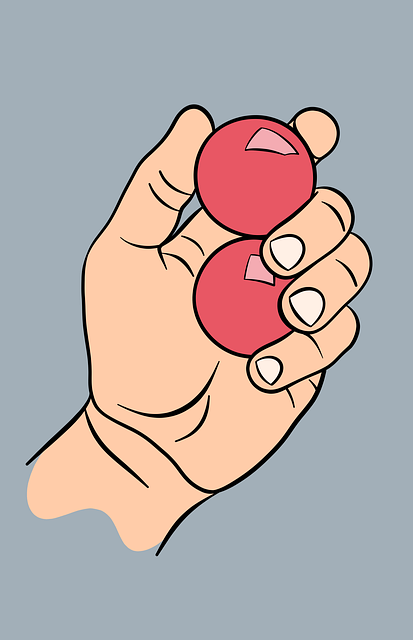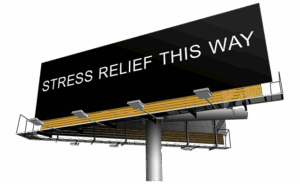Stress relief therapy empowers individuals to manage chronic stress through various evidence-based techniques. CBT identifies and changes negative thought patterns, mindfulness practices cultivate present-moment awareness, relaxation exercises combat stress hormones, and healthy lifestyle changes support overall well-being. Choosing a certified therapist experienced in relevant methods is crucial for effective stress management and improved quality of life.
Stress is a modern-day epidemic, but finding effective stress relief is possible. This comprehensive guide explores various therapy options designed to reduce and manage stress. From cognitive behavioral therapy (CBT) and mindfulness practices to relaxation techniques and lifestyle adjustments, discover practical tools for navigating life’s challenges. Learn how to empower yourself with knowledge and strategies to enhance well-being and reclaim control over your mental health. Uncover the path to a calmer, more balanced you through stress relief therapy.
Understanding Stress and Its Impact

Stress is a natural response to various life situations, but chronic or prolonged stress can significantly impact our physical and mental well-being. It often manifests as feelings of anxiety, irritability, and even physical symptoms like headaches or insomnia. Understanding the sources of stress in our lives is the first step towards managing it effectively.
Stress relief therapy provides individuals with powerful tools to navigate and overcome these challenges. Through various therapeutic techniques, such as mindfulness, cognitive-behavioural therapy (CBT), and relaxation exercises, people can learn to identify and change unhelpful thought patterns and behaviours associated with stress. This, in turn, promotes a sense of calm, enhances resilience, and improves overall quality of life.
Types of Therapy for Stress Relief

Stress relief therapy comes in various forms, each offering unique benefits for managing and reducing stress levels. One popular approach is cognitive-behavioural therapy (CBT), which focuses on identifying and changing negative thought patterns and behaviours contributing to stress. CBT helps individuals develop healthier coping strategies, improve their mood, and gain a sense of control over stressful situations.
Another effective method is mindfulness-based stress reduction (MBSR). MBSR encourages individuals to cultivate present-moment awareness through meditation, breathing exercises, and yoga. By promoting relaxation and reducing rumination, MBSR enables people to better manage stress responses and enhance overall well-being. These therapeutic techniques can be tailored to individual needs, providing personalized tools for achieving lasting stress relief.
Cognitive Behavioral Therapy (CBT): A Step-by-Step Guide

Cognitive Behavioral Therapy (CBT) is a structured and goal-oriented approach to stress relief therapy. It focuses on identifying and changing negative thought patterns and behaviors that contribute to stress and anxiety. The process begins with assessing your current thoughts, feelings, and behaviors, helping you gain insight into the connection between them. Once identified, these problematic areas are then addressed through various techniques, such as cognitive restructuring, where you learn to challenge and replace irrational beliefs with more realistic and positive ones.
The therapy involves setting specific and achievable goals, often in a step-by-step manner. You’ll work with your therapist to create an action plan, which may include exposure therapy for facing fears gradually, learning relaxation techniques like deep breathing or meditation, and developing healthier coping strategies. Regular sessions will help you monitor progress, refine these strategies, and integrate them into your daily life, ultimately leading to better stress management and improved overall well-being.
Mindfulness and Meditation Techniques

Mindfulness and meditation techniques are powerful tools in the arsenal of stress relief therapy. Mindfulness involves being present in the moment, observing thoughts and feelings without judgment, and focusing on the here and now. This simple yet profound practice can help individuals detach from stressful situations and gain a new perspective. Regular mindfulness exercises have been shown to reduce symptoms of anxiety and depression, improve sleep quality, and enhance overall well-being.
Meditation, often used hand-in-hand with mindfulness, involves training the mind to achieve a state of calm and clarity. Different meditation techniques, such as guided imagery, deep breathing, or mantra recitation, can help individuals cultivate inner peace and resilience against stress. By regularly engaging in these practices, one can develop a stronger ability to cope with challenging situations, thereby improving their overall stress relief therapy outcomes.
The Power of Relaxation and Breathwork

In the quest for stress relief therapy, one of the most powerful tools at your disposal is relaxation and breathwork. These techniques are not merely passive activities; they are active forms of self-care that can significantly reduce levels of stress hormones like cortisol. By focusing on slowing down breathing and cultivating a state of calm, individuals can experience profound mental and physical benefits. Relaxation exercises have been shown to lower blood pressure, improve heart rate variability, and enhance overall well-being.
Breathwork, in particular, is a game-changer in stress relief therapy. Controlled breathing activates the parasympathetic nervous system, promoting relaxation and helping to calm the mind. Simple practices such as deep belly breathing or specific pranayama techniques from yoga can be incorporated into daily routines. These methods not only provide immediate stress relief but also build resilience over time, empowering individuals to better navigate challenging situations.
Lifestyle Changes to Support Stress Management

In addition to professional therapy for stress reduction, making lifestyle changes can significantly support your overall well-being and management of stress. Incorporating regular physical activity into your routine is a powerful tool against stress; exercise releases endorphins, which act as natural mood boosters, helping to reduce feelings of anxiety and depression. A balanced diet also plays a crucial role in managing stress levels, as certain foods contain nutrients that support brain health and promote relaxation. Adequate sleep is another cornerstone of stress management; aiming for 7-9 hours per night allows your body and mind to rest and recover.
Additionally, cultivating mindfulness practices like meditation or yoga can help you stay grounded in the present moment, reducing rumination on stressful thoughts. Building a routine that includes these healthy habits alongside therapy for stress relief can create a holistic approach to managing stress, enabling you to better navigate challenging situations and promote overall mental well-being.
Seeking Professional Help: Finding the Right Therapist

When considering stress relief therapy, one of the most important steps is finding the right therapist. It’s crucial to choose a professional with whom you feel comfortable and who specializes in areas relevant to your stress management needs. Look for therapists certified in specific types of stress relief techniques like cognitive behavioral therapy (CBT), mindfulness-based practices, or other evidence-based approaches.
Research their background, experience, and client testimonials to gauge their effectiveness. Consider factors such as location, availability, and cost when making your decision. Remember, the therapeutic relationship is collaborative, so it’s essential to connect with a therapist who understands your unique situation and can guide you effectively on your journey towards stress reduction.
